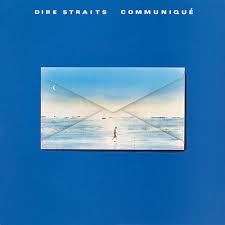communique
英 [kəˈmjuː.nɪ.keɪ]
美 [kəˈmjuː.nɪ.keɪ]
- n. 公报,官报
星级词汇:

记忆方法
1、com- "together" + mun- + -ique. 这里主要指:share about information.
2、字面含义:people together to use or share services or duties. => make services or duties publicly. => literally "that which is common". => make common, share.
3、解读:大家一起使用、享用各种服务、职能。也就是使各种服务、职能公共化。所以,由此,引申为:公社、社区;包括分享、共享想法、心得等;=> 谈心、亲密交谈。
4、people together to use or share services or duties. => make services or duties publicly. => 大家一起使用、享用各种服务、职能。也就是使各种服务、职能公共化。
5、说通俗点儿就像是:同呼吸共命运,风雨同舟,有福同享有难同当。
6、=> commun-: make common, share. 包括:share about information.
7、Originally the heading of official statements from the French government.
2、字面含义:people together to use or share services or duties. => make services or duties publicly. => literally "that which is common". => make common, share.
3、解读:大家一起使用、享用各种服务、职能。也就是使各种服务、职能公共化。所以,由此,引申为:公社、社区;包括分享、共享想法、心得等;=> 谈心、亲密交谈。
4、people together to use or share services or duties. => make services or duties publicly. => 大家一起使用、享用各种服务、职能。也就是使各种服务、职能公共化。
5、说通俗点儿就像是:同呼吸共命运,风雨同舟,有福同享有难同当。
6、=> commun-: make common, share. 包括:share about information.
7、Originally the heading of official statements from the French government.
中文词源
communique 公报
来自法语,词源同communicate,交流,分享信息。
英语词源
- communique (n.)
- 1852, from French communiqué, originally past participle of communiquer "to communicate" (14c.), from Latin communicare "impart, inform" (see communication). Originally the heading of official statements from the French government. Better, if it must be used in English, to print it with the accent.
权威例句
- 1. The announcement was made in a communique & 1 & issued by the Defence Minister.
- 这项公告是在国防部长的 公报 中发出的.
- 2. The communique & 1 & made no mention of progress on any of the issues.
- 公报只字不提这些问题中哪个问题取得了进展.
- 3. The communique gave no other details.
- 这份公报并未透露其他细节。
- 4. My colleagues read the communique with astonishment rather than jubilation.
- 同事们读了公报,只感惊奇,而非欣喜.
- 5. The following communique was therefore framed and agreed to by all.
- 因此,拟定了下列公报,并获得大家一致同意.
